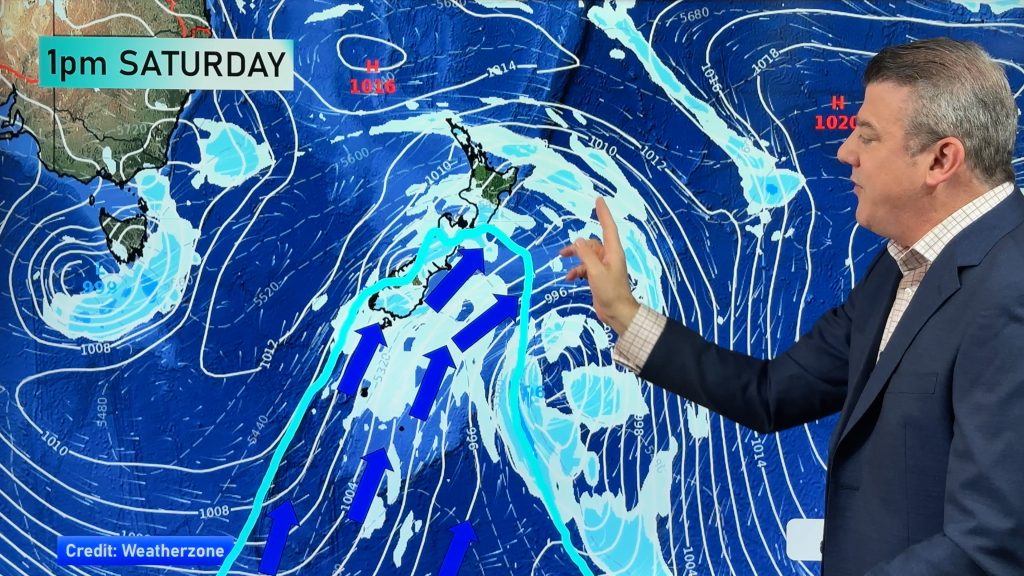Mass bleaching of NZ marine sponges largest event recorded globally
6/08/2024 11:27pm

> From the WeatherWatch archives
A mass bleaching of more than 50 million sponges in Fiordland was the largest event of its kind ever recorded and is estimated to have cut the population by close to half, a new study reports.
Lead author Professor James Bell, a marine biologist at Te Herenga Waka—Victoria University of Wellington, says the bleaching occurred in 2022 during an intense marine heatwave that lasted 259 days and pushed water temperatures to 4.4ºC above average.
The bleaching event occurred along 1,000 kilometres of coastline and saw the cup-shaped sponge Cymbastella lamellata turn from their usual chocolate-brown colour to a bright white.
Nearly one year later, the researchers found almost 50 percent of sponges at sampling sites had died.
“Not only was this the largest sponge bleaching event seen globally, it was also the largest sponge mortality event that’s ever been recorded,” said Professor Bell.
As the climate warms, marine heatwaves are occurring more often and becoming more intense, with major effects on sea life.
“During the 2022 heatwave in Fiordland, more than 90 percent of C. lamellatasponges were bleached. These sponges are one of the most abundant species in Fiordland and play a crucial role in the ecosystem, including by providing habitat and recycling nutrients that support marine life.
“We discovered the sponges are key contributors to dissolved organic carbon production in the water column. This food source has the potential to fuel the microbial food chain and support organisms higher up the chain. The mass death of sponges after the 2022 heatwave means this potential fuel source has been reduced—we estimate by as much as 850 tonnes.”
Professor Bell and his co-researchers discovered that some sponges were able to recover from bleaching, showing they may be able to adapt to heat stress.
“We detected changes in the microbial communities that these sponges play host to—the tiny creatures they have a symbiotic relationship with. The changes we observed suggest the sponges are displaying a rapid evolutionary response to warming waters in an effort to survive.
“This gives us reason to be optimistic that sponges may be able to adapt to warming waters. However, we need to do more research to test this and to monitor how more frequent and intense marine heatwaves may affect this vital species,” said Professor Bell.
The researchers also observed that the drought conditions and unusually low rainfall that coincided with the marine heatwave may have allowed more light to reach the usually dark waters of Fiordland, worsening the bleaching and mortality rate of the sponges.
“This event highlights the need to consider the impacts of compounding extreme events—such as coastal temperature and freshwater extremes—on marine ecosystems, and how the likelihood of such events may change in the future,” said Dr Robert Smith, a physical oceanographer from the University of Otago and part of the research team.
The study is published in the journal Global Change Biology.
The research was funded by Te Herenga Waka—Victoria University of Wellington, Department of Conservation, George Mason Charitable Trust, Fiordland Lobster Company, and The Lesley Hutchins Conservation Foundation.
- Image / Partially bleached sponge / James Bell
- This media release was written by Victoria University, Wellington, and sent to NZ media outlets.
Comments
Before you add a new comment, take note this story was published on 6 Aug 2024.





Add new comment
Mr Solomon on 7/08/2024 8:54pm
could cruise ship ballast discharge contribute
or have its own toxic flow on effect?
Reply
WW Forecast Team on 7/08/2024 9:58pm
Hi there, we doubt that would be significant enough to cause the largest bleaching event on earth. The marine heatwave back then was significant – it was big and widespread around most of NZ for several months, as we covered it in our ClimateWatch Monthly forecasts month after month.
– WW
Reply